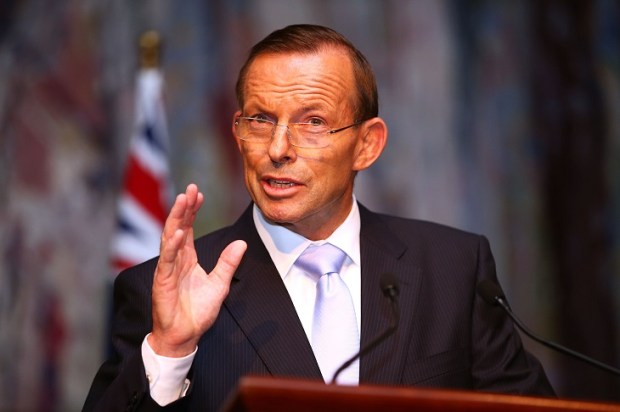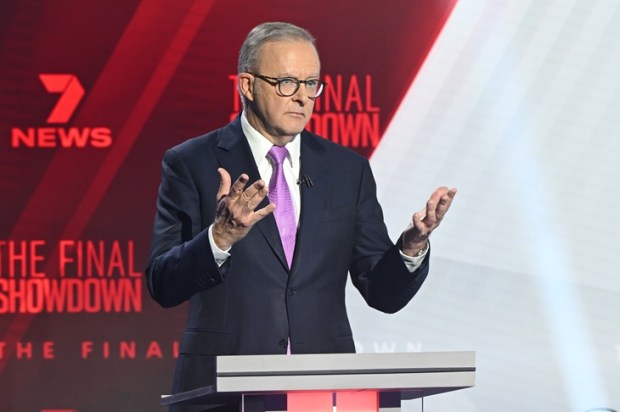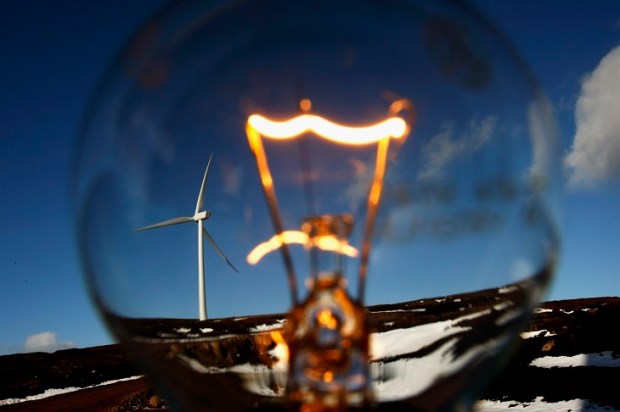Now the hurley burley’s done, and Dan Andrews is in the pantheon of the state’s great leaders, it’s time to see what Victorians voted for.
Like other electorates in the Western world, Victorians proved themselves to have a large appetite for government spending. The Lib-Nats joined Labor (and, of course the Greens) in proposing big increases in hand-outs. For Labor, these included subsidies for electricity, travel, kindergartens, and ‘infrastructure’.
But, reflecting voter preferences for free stuff, Labor was reticent in approving tax increases to cover these increases. These election gifts therefore (as did the Liberals’ offerings) add to the state’s $165 billion in formal debt plus funding for the new suburban rail link, which is to cost at least $125 billion. Victoria’s Treasurer Tim Pallas kept a straight face when, just before the election and following a blow-out from the May forecast, he said that he would balance the budget by 2025-26. Ludicrously, the hapless Liberal Opposition did not even challenge the credibility of this.
One mystifying number in the central plank of the Labor’s new policy approach – the re-nationalisation of the Victorian electricity generation supply – was the Premier’s oft-stated and much-advertised claim that the industry had ripped off Victorian customers by $23 billion over the past 20 years.
This re-wrote an outcome, which even the ALP had previously reluctantly accepted, as being an outstanding achievement in both paying off debt of a former profligate Labor government and creating a highly efficient low-cost supply.
Dan claimed that a profit-oriented private owners had brought about Victoria’s high electricity prices. He never bothered to wonder how the six or seven different suppliers of Victorian electricity could profitably exploit the consumer by successfully conspiring to levitate prices. Ingrained in Dan is a seasoned socialist psyche, including an unquestionable acceptance that the capitalists would always get together to rig prices irrespective of cut-throat competition among them and the oversight of the ACCC.
Nor did Dan think to reflect about how to square his anti-capitalist rationalisation of high Victorian prices can be consistent with even higher prices in Queensland where the supply is dominated by government-owned generators. Perhaps he did not know that the prices were higher in Queensland – if so, that is an indictment of the gross ignorance of those making decisions on behalf of the rest of us.
But from where did Dan Andrews get his $23 billion estimate of the private sector generators’ rip-off? It was not in any published government papers, nor was its source referenced in the ALP election material.
Assiduous googling finally revealed the answer. It came from a paper by Bruce Mountain who runs the government-financed Victoria Energy Policy Centre, housed in Victoria University. The paper was published in the Conversation, a left-wing outlet for the loose opinions of university academics.
In it, Mr Mountain made the astonishing claim, ‘For Victoria’s brown-coal generators privatised in the 1990s – Loy Yang A and B, Hazelwood and Yallourn – I estimate a total EBITDA of $23 billion on revenues of $62 billion, since 1998.’ He argued that EBITDA – earnings before interest, depreciation, and amortisation is a widely accepted measure of profit used by economists.
It is a useful measure of one element of profit. But if it is a guide for the degree to which private enterprises earn excessive returns, how does it apply to state-owned enterprises? Mr Mountain and the Premier’s advisers need have looked no further than Victorian state-owned enterprises, like Melbourne Water.
Melbourne Water, Chaired by ALP luminary John Thwaites, and with a board loaded with Labor-aligned Directors, earned $6.7 billion above its EBITDA in the last five years. On the reasoning of the Premier, Melbourne Water, an entity he controls, which does have genuine monopoly powers, ripped off (in the language of Dan Andrews) $6.7 billion from Victorian customers in just five years. With an EBITDA margin of 68 per cent, it was overcharging by two-thirds!
Dan Andrews’s ingrained hostility to private enterprise, a seductive but utterly fallacious number, and a superb reading of the politics caused him to invent re-nationalisation of electricity an issue. Either because of its own similar reading of the politics or because – heaven forbid – it accepted the same narrative, the Opposition could counter only with a limp response that it has higher priorities than re-nationalisation of electricity supply.
So, in addition to a misplaced, ideologically-driven, economy-destroying replacement of coal by wind and solar, we now have a government that can claim a mandate to complete the job by dismantling the privately owned facilities that fuel the state’s electricity system. Things are going to get a great deal worse.

























